Grant applications can be a complicated and lengthy process, and it can be challenging to manage them while keeping track of clients’ schedules. However, a well-planned workflow can make the process more efficient and effective. With our clients it is crucial to break down the application process into smaller deadlines to ensure that everything is completed on time. Our grant writers work with each client in a step by step manner to gather all the information needed to successfully write grant proposals according to the appropriate guidelines. In this post, we will discuss how to manage your grant application schedule with clients using efficient processes and workflows.
Step 1: Develop a Grant Application Timeline
The first step in managing our grant application schedule is to develop a timeline that outlines all of the key milestones in the application process. This includes the application deadline, the date when the grant announcement will be made, and the date when funding will be distributed. We work closely with our clients to ensure that the timeline is realistic and achievable, taking into account the time required to complete each task. Even if a grantmaker has a requirements checklist on their page make sure to look through the most updated grant application information.
Step 2: Identify Specific Application Needs
With a list of potential grant opportunities in hand, we work with our clients to prioritize their grant applications. We consider factors such as the potential impact of the grant, the likelihood of success, and the resources required to complete the application. We also evaluate whether our clients are eligible to apply for the grant. We review the grant guidelines, eligibility criteria, and other requirements to ensure that our clients meet the necessary qualifications. By prioritizing applications, we ensure that our clients are focusing their time and resources on the most promising opportunities.
Step 3: Note and Collect Front Matter
After determining the grant and our client’s eligibility we need to note and collect all the necessary information or front matter. This includes the purpose of the grant, deadlines, requirements, and other critical details. Look through all of the requirements for that specific grant and compare them to the client’s existing materials. Grantmakers will often want more than just an application and budget. They may ask for anything from the blueprints for a construction project to letters of support from donors. Collecting this information will help you understand the scope of the project and needs to be dealt with at the beginning of the grant process, hence “front matter.”

Step 4: Setting Achievable Deadlines
A well-planned workflow can make the grant application process smoother for both you and your client. A workflow consists of a series of steps or tasks that need to be completed to achieve a specific goal. It is crucial to break down the application process into smaller tasks and assign them to specific team members to ensure that everything is completed on time.
Step 5: Completing the Work
As the application process progresses, it is essential to ensure that everything is on track, and all tasks are being completed on time. This step requires regular check-ins with the team and the client to discuss the progress and any challenges that may arise.
Finally, we work with our clients to submit their grant applications on time and in accordance with the guidelines provided by the grantor. We monitor the progress of each application and provide updates to our clients on the status of their submissions. We also prepare our clients for the possibility of a site visit or interview, if required by the grantor.
Managing grant applications with clients can be challenging, but with efficient processes and workflows, it can be made more manageable.
By following these steps, we are able to effectively manage our grant application schedule with clients and increase their chances of receiving funding. Our clients benefit from our expertise and support throughout the entire application process, from identifying grant opportunities to submitting their final proposals.






